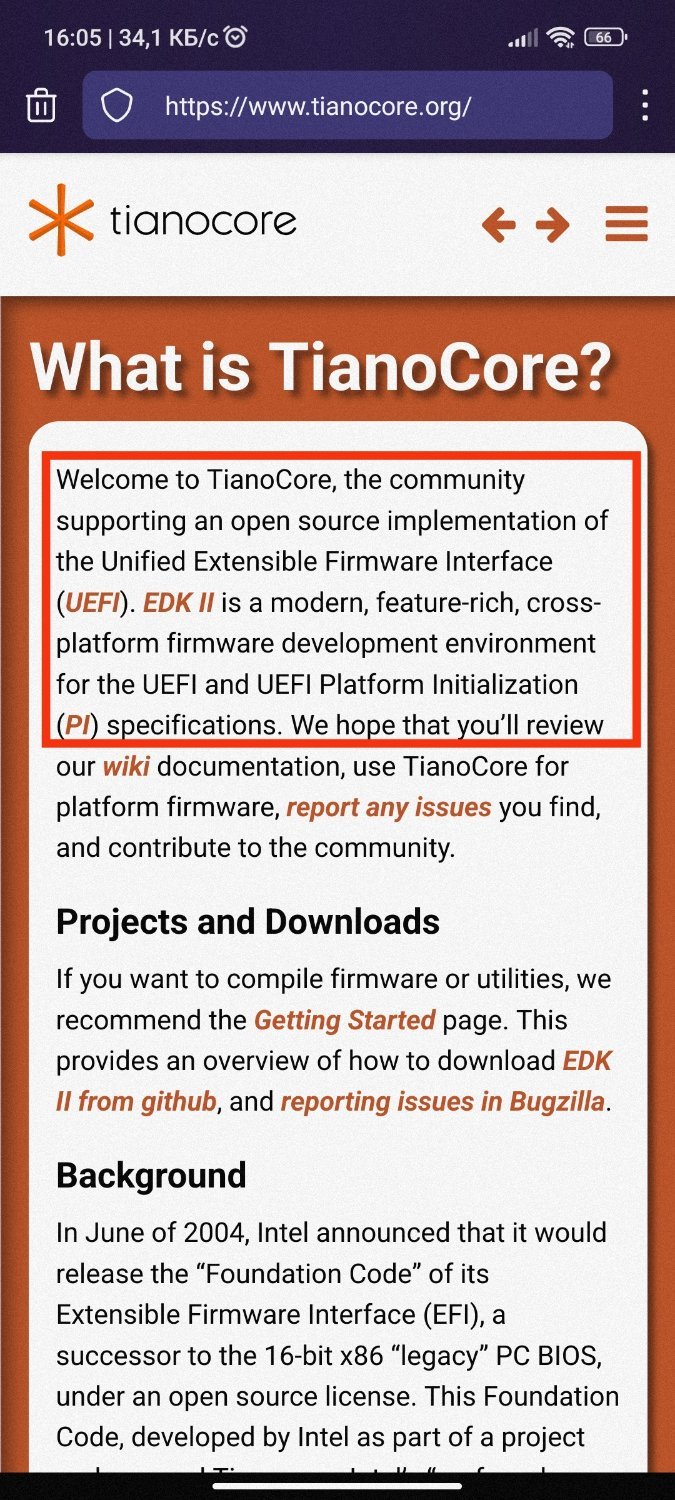160
TUXEDO on ARM is coming - TUXEDO Computers
(www.tuxedocomputers.com)
From Wikipedia, the free encyclopedia
Linux is a family of open source Unix-like operating systems based on the Linux kernel, an operating system kernel first released on September 17, 1991 by Linus Torvalds. Linux is typically packaged in a Linux distribution (or distro for short).
Distributions include the Linux kernel and supporting system software and libraries, many of which are provided by the GNU Project. Many Linux distributions use the word "Linux" in their name, but the Free Software Foundation uses the name GNU/Linux to emphasize the importance of GNU software, causing some controversy.
Community icon by Alpár-Etele Méder, licensed under CC BY 3.0
Will they feature an UEFI?
There has been lots of reporting the X Elite will use UEFI.
What why?
Without UEFI, the boot process is different for each device, requires a custom boot loader, or at least explicit support by the operating system. Is your laptop going to be supported by the distribution you want to use? What about in 5 or 10 years? With UEFI, the boot process is standardized, so it should just work.
Oh yeah but well instead of using the UEFI we probably should include libreboot or coreboot. But uefi is better than nothing but since its tuxedo we should expect some libreboot
Not “oh yeah” that’s a major concern and the biggest issue with ARM adoption. SBCs and ARM tablets are a mess when it comes to Linux support and one of the biggest reasons for it is the lack of an UEFI. Long term support as said is another very big concern, if you take any x86 box new or old things will work predictably because the OS doesn’t need to know the details of the boot process / low level hardware control.
I mean it should have libreboot or coreboot instead of uefi since its tuxedo afterall. UEFI is better than nothing but libreboot woulf be better
I don’t disagree with you, but maybe we can aim for UEFI right now on ALL ARM CPUs/boards from the vendors?
But if libreboot or coreboot is first implemented on arm boards, i think many vendors are going to follow up with the same. Then it would be much better since we don't have to risky remove uefi for libreboot
https://www.coreboot.org/TianoCore
You mean tianocore payload of coreboot/libreboot? That's uefi
I am probably misunderstanding. So Libreboot does not "replace" UEFI ? Then what's the point of libreboot
That it's open source, vendor uefi is rarely open source, plus coreboot have many other payloads like seabios, uboot, grub
I mean if it does not replace uefi which is not open, whats the point. I am asking for libreboot because it is "libre"
Tianocore is in libreboot too
Tianocore is not necessary for libreboot right? So why do we need uefi for libreboot?
As i wrote before, tell me, how do you install linux without booting from usb?
Libreboot would allow booting from USB probably
If you build with correct payloads, otherwise you couldn't do that
Tell me, what is "libre" for you, from what you've wrote so far, i see that it's just new buzzword for you and you don't understand what it is, read what tianocore is, if you don't want it, to each their own, but tell me, how do you install OS on your pc without booting form usb/cd/dvd and not writing entries in uboot at least, and did you even installed Linux even once before?
Yes. I am probably misunderstabding things. To my knowledge, libreboot is a FOSS alternative for UEFI. Correct me if i'm wrong. Libreboot exist to replace the proprietary uefi. Again correct me if i'm wrong. Since libreboot replaces uefi, it also would allow booting from usb, no? Checking libreboot website i saw tianocore mentioned in some release changelog which they will not be including in the default ones because its bloated and buggy. They say they use other payloads. I still don't understand why tianocore is uefi.
Whatever if libreboot itself does not allow booting from usb, how would a libreboot user install any os at all?
You can use other payloads that allow booting from USB, but they are quite outdated, like seabios or if you know how to boot from USB with grub cli then grub payload, however, usually tianocore is used because it is open source and gives usual interface
So libreboot + payload replaces uefi right? Why did you say tianocore is uefi? Whenever i hear uefi i'm thinking about proprietary boot firmware, and thats why I advocated for including libreboot instead of uefi in theese chips. I don't understand where is uefi in this libreboot + tianocore or whatever payload
Tianocore = open source uefi
Ok so what we wish for is open source uefi instead of proprietary uefi
That's what I've been talking about, you have uefi here and there, but we need open source one
Because how do you install Linux without ability to choose boot from USB (changing boot order)
There has been lots of reporting the X Elite will use UEFI.
I think you accidentally replied this thrice
There has been lots of reporting the X Elite will use UEFI.